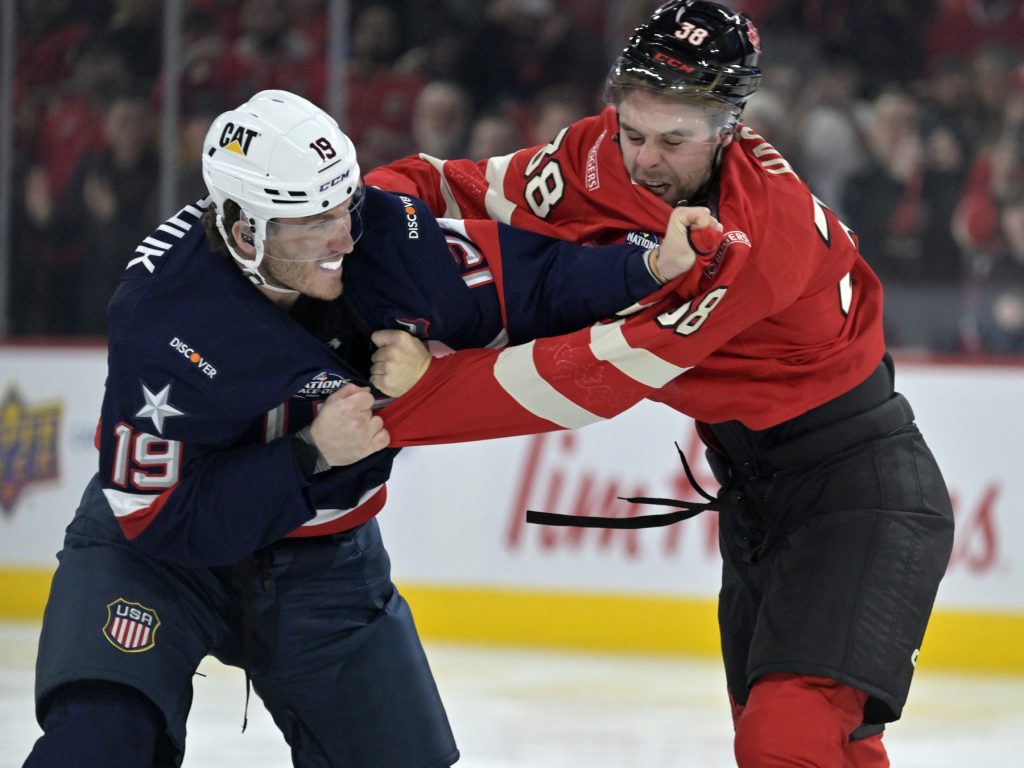Hockey has always had a special place in the hearts of Canadians, and nothing captures that passion more than best-on-best tournaments. The best facing the best. It’s what sport is all about. Despite initial concerns, David Alter is a big fan of the 4 Nations format.

I have to admit that I was a little pessimistic when the National Hockey League and the NHLPA announced the creation of the 4 Nations Face-Off. The four-team tournament that was strictly created in place of a proper World Cup because Russia is not permitted to participate, also excluded some of the NHL’s best talent from the Czech Republic, Slovakia and Germany, among others because there is simply not enough NHL talent to fill the rosters. At Bodog News, we’ve been following these developments closely, and the mixed reactions are understandable.
But hey, at least the gimmicky Team North America and Team Europe teams from 2016 are gone. But I’ll digress.
A small part of me knew that as much apathy I had at the time, that as soon as the games started I’d be interested. And as soon as Canada took on the United States it was going to get pretty damn interesting.
From the booting of the American anthem due to what’s happening south of the border with threats to annex Canada to the three fights that occurred in nine seconds, the 4 Nations Face-Off has been a fine little welcome back to best-on-best hockey.
The ratings in the states are through the roof and it’s nice to see the NHL and the players aligned that they need to grow their game at the world stage by having World Cups and Olympic participation every other February. That’s going to be the plan, anyway.
It’s the perfect time. Past World Cups occurred in September where world interest in sports is primarily with the start of the NFL season among other things. In February, the NHL athletes are already in mid-season form.
Seeing No. 34 captain Team USA, Mitch Marner score a key overtime winner in clutch situation and William Nylander happily represent Sweden has been a good experience for the Leafs players to come back to when it’s all over.
Take the rules with you, NHL. There are two key changes the NHL adopted in this 4 Nations Face-Off tournament that are not a part of the regular season that I want to see going forward.
The three-point system. When the NHL eliminated ties in 2005, they moved to a system of giving two points for a win of any kind, one point for an overtime/shootout loss and no points for a regulation loss. That led to an inflation in the standings that attempted to make teams look closer than they are in the standings, when in reality, teams chasing a playoff spot down the stretch were losing an uphill battle. If your team was chasing a spot behind two teams that were in the hunt and they went to overtime, you lost ground on both teams because three points were awarded to a combined two teams instead of two. Every game should have the same amount of points up for grabs. That’s why the IIHF moved to a three-point system, awarding three for a regulation win and two for an overtime/shootout win. That’s how it should be. The NHL decided to do the right thing for this tournament and should look to adopt it in the regular season.
The 10-minute shootout. The fun thing about these mid-season events is it gives the NHL the chance to try new things and extending the overtime to 10 minutes appeared to be a big hit with most players. Some were still against it, but I think most people would agree that anything that reduces the frequency of a shootout deciding a game is best for everyone involved. Funny enough, it was the 2003 NHL All-Star Game in San Jose where the shootout decided the game for the first time in history. The popularity of the finish of that contest led to a way to break ties when the NHL eliminated it in their 2005 collective bargaining agreement.